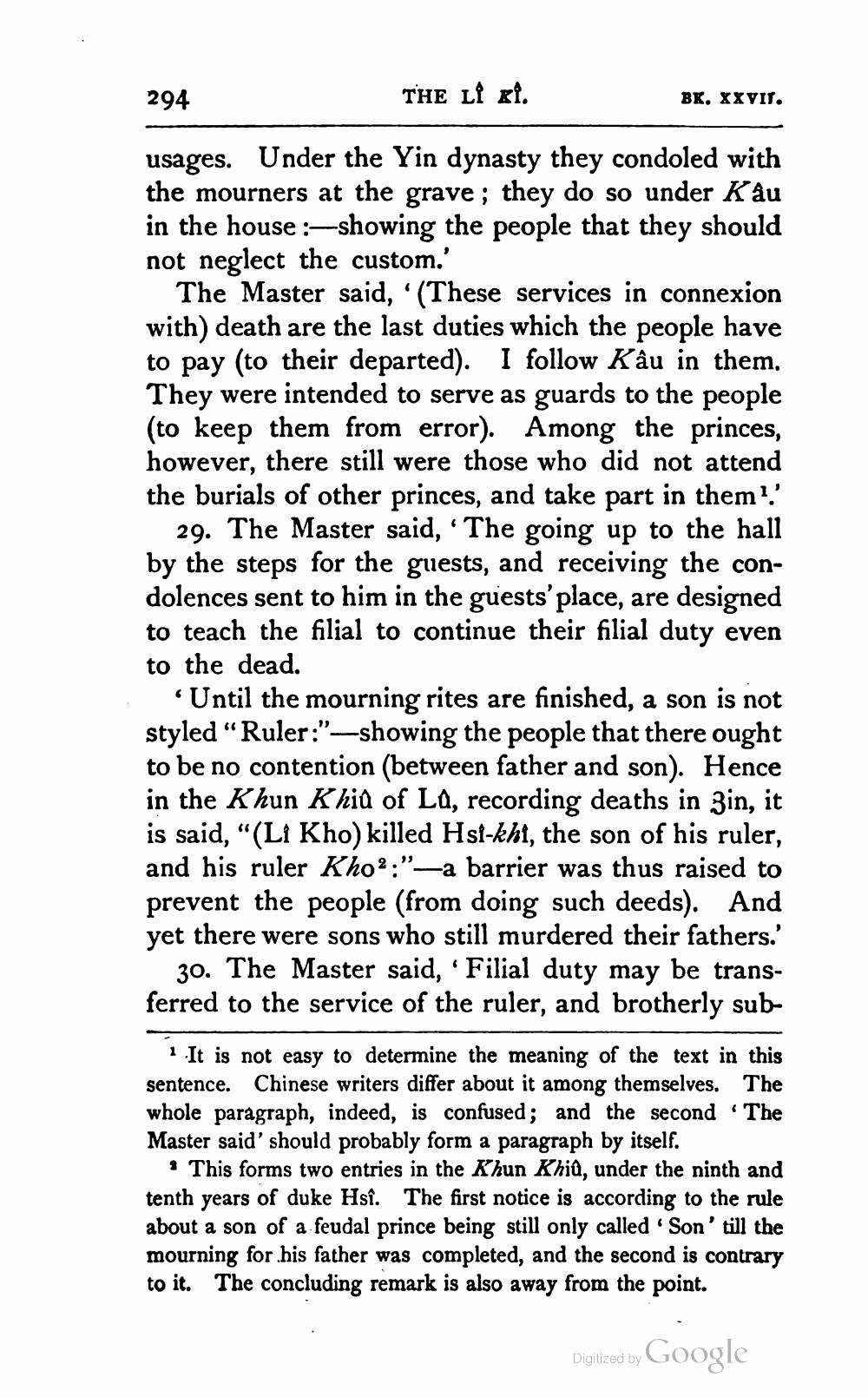________________
THE LI Kİ.
usages. Under the Yin dynasty they condoled with the mourners at the grave; they do so under Kâu in the house-showing the people that they should not neglect the custom.'
294
BK. XXVII.
The Master said, '(These services in connexion with) death are the last duties which the people have to pay (to their departed). I follow Kâu in them. They were intended to serve as guards to the people (to keep them from error). Among the princes, however, there still were those who did not attend the burials of other princes, and take part in them'.'
29. The Master said, 'The going up to the hall by the steps for the guests, and receiving the condolences sent to him in the guests' place, are designed to teach the filial to continue their filial duty even to the dead.
'Until the mourning rites are finished, a son is not styled "Ruler:"—showing the people that there ought to be no contention (between father and son). Hence in the Khun Khiû of Lû, recording deaths in 3in, it is said, "(Li Kho) killed Hsi-kht, the son of his ruler, and his ruler Kho2:"- -a barrier was thus raised to prevent the people (from doing such deeds). And yet there were sons who still murdered their fathers.'
30. The Master said, 'Filial duty may be transferred to the service of the ruler, and brotherly sub
It is not easy to determine the meaning of the text in this sentence. Chinese writers differ about it among themselves. The whole paragraph, indeed, is confused; and the second 'The Master said' should probably form a paragraph by itself.
• This forms two entries in the Khun Khiû, under the ninth and tenth years of duke Hsî. The first notice is according to the rule about a son of a feudal prince being still only called 'Son' till the mourning for his father was completed, and the second is contrary to it. The concluding remark is also away from the point.
Digitized by
Google




